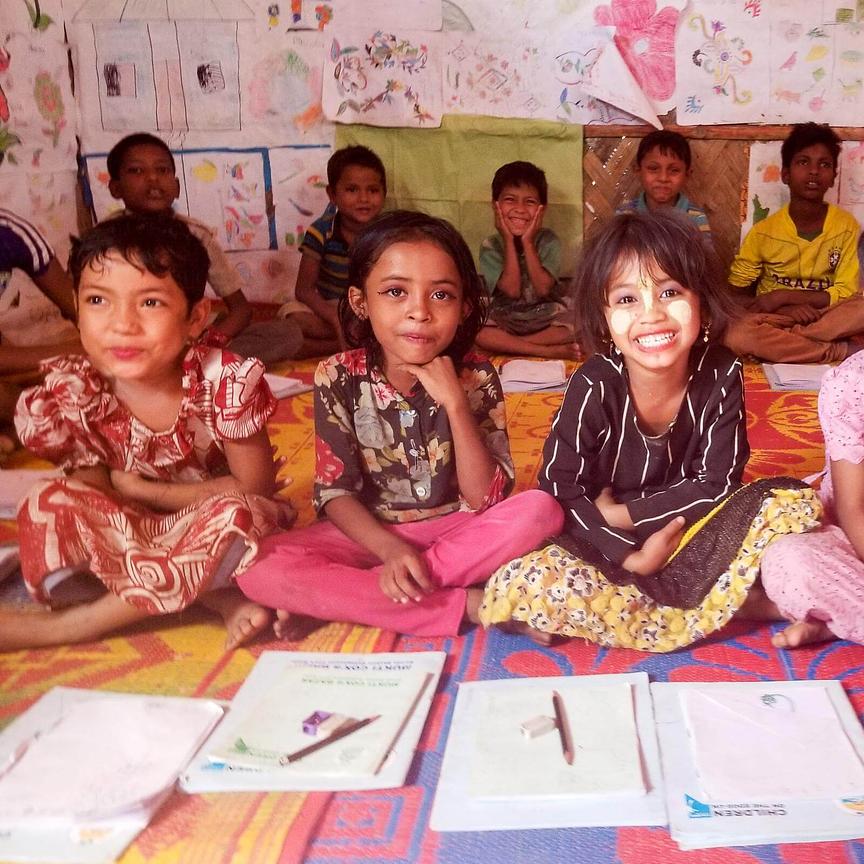When Children on the Edge began working with the Rohingya eight years ago. official UN camps in Bangladesh were at capacity and thousands of refugees were denied official status. They were forced to settle in makeshift border camps with no opportunity for basic services or education for their children.
They supported local people in the makeshift Kutupalong camp to develop an innovative model to provide education for their children, through a low-profile approach. The solution took the form of 45 small classrooms, dispersed throughout the camp, with basic learning materials.
The project was founded on local partnership and active community participation. Children, parents and the wider community were engaged at all levels and staff worked with parents to increase their understanding of the importance of education. Children were equipped with the skills and knowledge required to cope with their current situation and an uncertain path ahead.
Impact was demonstrated in a final external evaluation identifying how children’s language, literacy and numeracy had improved and was evident in everyday capacities and exam scores. Final monitoring recorded a 97% pass rate on official exams. Monitoring change indicators showed an increase in signs of confidence and self-esteem, rising from 30% to 90% of students over three years. 99% of students reported high aspirations for the future.
There were already an estimated 400,000 Rohingya in Bangladesh before the brutal, coordinated military campaign of August 2017 forced an additional 700,000 refugees into the border camps. Without support, children are ill-equipped to cope with the daily challenges of living in the camps, unable to process the trauma they have been through, and lacking in preparation for an uncertain future.
Children on the Edge have now replicated the main elements of their original project to cater for 7,500 newly arrived children in the Kutupalong-Balukhali camp, through the establishment of 150 classrooms. Children engage with a government approved curriculum to Grade 3, alongside bespoke rights-based, creative activities. Centres here are semi-permanent, to cater for a potential move, and space is negotiated through established community relationships.
The components of this provision are:
- Quality, child-friendly, rights-based education
- Colourful, inclusive and welcoming learning environments.
- Teachers trained from within the refugee and slum communities
- Children’s voices heard through child councils and quarterly child led newsletters
- A programme designed, adapted and maintained by local communities
- Innovative digital lessons to overcome learning barriers


